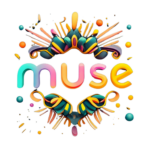In the ever-evolving world of marketing, staying ahead of the curve requires embracing technology-driven strategies that leverage the power of innovation and data intelligence. From artificial intelligence to automation and beyond, technology has become an indispensable tool for marketers seeking to connect with audiences in meaningful ways and drive tangible results.
Artificial Intelligence (AI) stands at the forefront of tech-driven marketing strategies, offering unprecedented capabilities for data analysis, personalization, and automation. AI-powered tools enable marketers to gain deeper insights into consumer behavior, preferences, and trends by analyzing vast amounts of data in real-time.
This allows for the creation of highly targeted campaigns that resonate with individual audiences, driving engagement and conversion rates. Moreover, AI-driven automation streamlines marketing processes, from lead generation to customer service, freeing up valuable time and resources for more strategic initiatives.
Factors of Tech-Driven Marketing Strategies
Data-driven decision-making is another cornerstone of tech-driven marketing strategies. By harnessing the power of data analytics, marketers can uncover valuable insights that inform campaign strategies, optimize performance, and drive ROI.
Advanced analytics tools enable marketers to track and measure the effectiveness of their marketing efforts across various channels, allowing for continuous improvement and refinement. From A/B testing to predictive analytics, data-driven decision-making empowers marketers to make informed choices that drive business growth and success.
Personalization has emerged as a key differentiator in today’s competitive marketing landscape, and technology plays a crucial role in delivering personalized experiences at scale. Through the use of AI and machine learning algorithms, marketers can segment audiences based on demographics, behavior, and preferences, allowing for highly targeted messaging and content delivery.
From personalized email campaigns to tailored product recommendations, personalized marketing experiences drive higher engagement, loyalty, and conversion rates, ultimately leading to increased revenue and customer satisfaction.
Automation is another tech-driven strategy that is transforming the marketing landscape. Automation tools enable marketers to streamline repetitive tasks, such as email marketing, social media management, and content distribution, freeing up time for more strategic activities. By automating routine processes, marketers can focus on high-impact initiatives, such as strategy development, creative ideation, and relationship building, leading to improved productivity and efficiency.
Emerging technologies such as augmented reality (AR) and virtual reality (VR) are also poised to disrupt the marketing landscape, offering immersive experiences that captivate audiences and drive engagement.
AR and VR technologies enable marketers to create interactive brand experiences, virtual product demonstrations, and immersive storytelling campaigns that resonate with consumers on a deeper level. From virtual try-on experiences to virtual tours and interactive games, AR and VR offer endless possibilities for creativity and engagement in marketing.
Conclusion
Tech-driven marketing strategies are revolutionizing the way businesses connect with consumers, drive engagement, and achieve their marketing objectives. From AI-powered personalization to data-driven decision-making and automation, technology is enabling marketers to deliver more targeted, relevant, and impactful campaigns than ever before.
By embracing these tech-driven strategies, businesses can stay ahead of the curve, drive growth, and build lasting relationships with their audiences in today’s fast-paced digital landscape.

